On November 3, we organized a scientific seminar on “Globally Linearizing Control of Distributed Parameter Systems Described by Time-fractional Partial Differential Equations“. The scientific seminar was led by Ahmed Maidi, a professor at Mouloud Mammeri University in Tizi Ouzou, Algeria. The scientific seminar was organized in the framework of the FrontSeat project as part of the seminar series on “Research Seminar on Smart Cybernetics”.
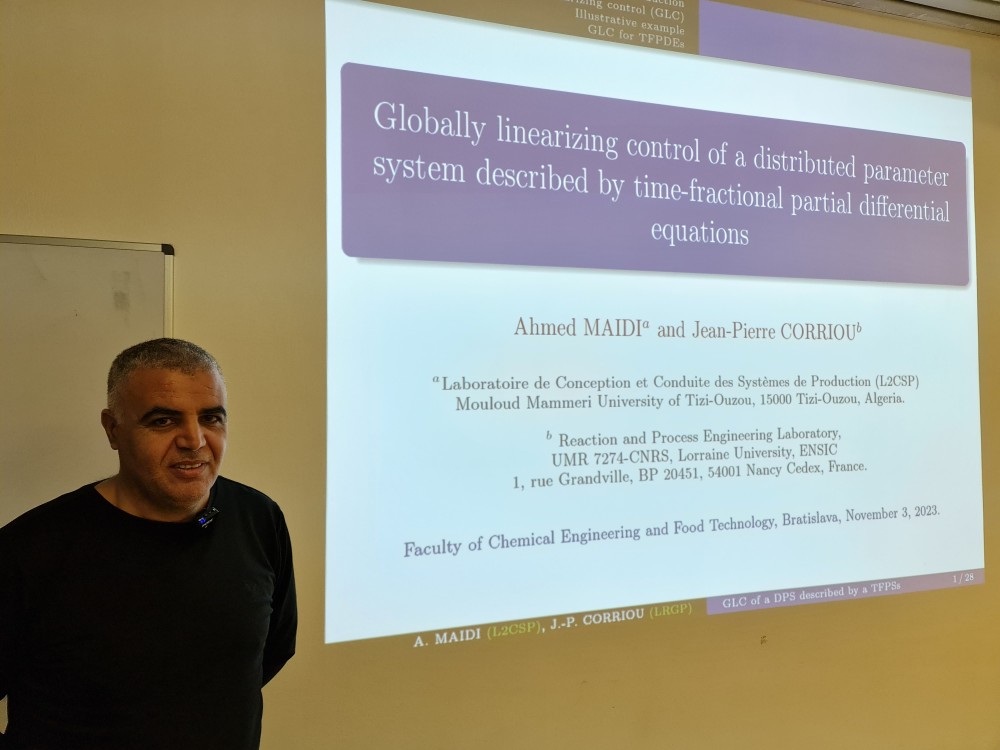
Abstract:
Globally linearizing control (GLC) has emerged as a powerful approach to tackle control problems of distributed parameter systems described either by integer partial differential equations (IPDEs) or fractional partial differential equations (FPDEs). The design of GLC for a distributed parameter system proceeds in two steps:
1. A linearizing or stabilizing state feedback is designed in the framework of input-output linearization using the concept of a characteristic index, which yields a linear lumped parameter system (finite-dimensional system) in a closed loop.
2. An external controller is designed to define the external input of state feedback using a well-developed linear control theory of lumped parameter systems. The design of the external controller is achieved for the resulting linear closed loop system in step 1. The external controller deals with uncertainties and disturbances rejection.
The key advantage of the GLC strategy is that the controlled distributed parameter system with the state feedback is a linear lumped parameter one. Hence, one might take full advantage of the powerful linear control tools while designing the external controller. This remarkable advantage motivated the extension of the GLC for distributed parameter systems described by FPDEs. FPDEs can be split into three classes: spatial FPDEs (SFPDEs), time FPDEs (TFPDEs), and time-spatial FPDEs (TSFPDEs). For SFPDEs, as the fractional partial derivative deals with the spatial coordinate, the GLC strategy can be successfully applied similarly to the case of IPDES since the time partial derivative is of integer order. For TFPDEs and TSFPDEs, the design of a GLC strategy remains a challenge for the control community. Indeed, as the time partial derivative is of fractional order, therefore it is difficult to generalize the notion of the characteristic index, which makes the state feedback design a rather impossible task in the framework of geometric control.
In this talk, to overcome the difficulty related to the fractional time derivative and to extend the application of GLC to the TFPDEs and TSFPDEs, two approaches are presented to the design of the stabilizing state-feedback in the framework of geometric control. The first approach consists of evaluating directly the fractional time derivatives of the output to be controlled, while the second approach suggests approximating the time fractional partial derivative by an integer one. Simulation results are provided to demonstrate the effectiveness of the two design approaches in achieving both output tracking of a constant reference and the rejection of a disturbance.
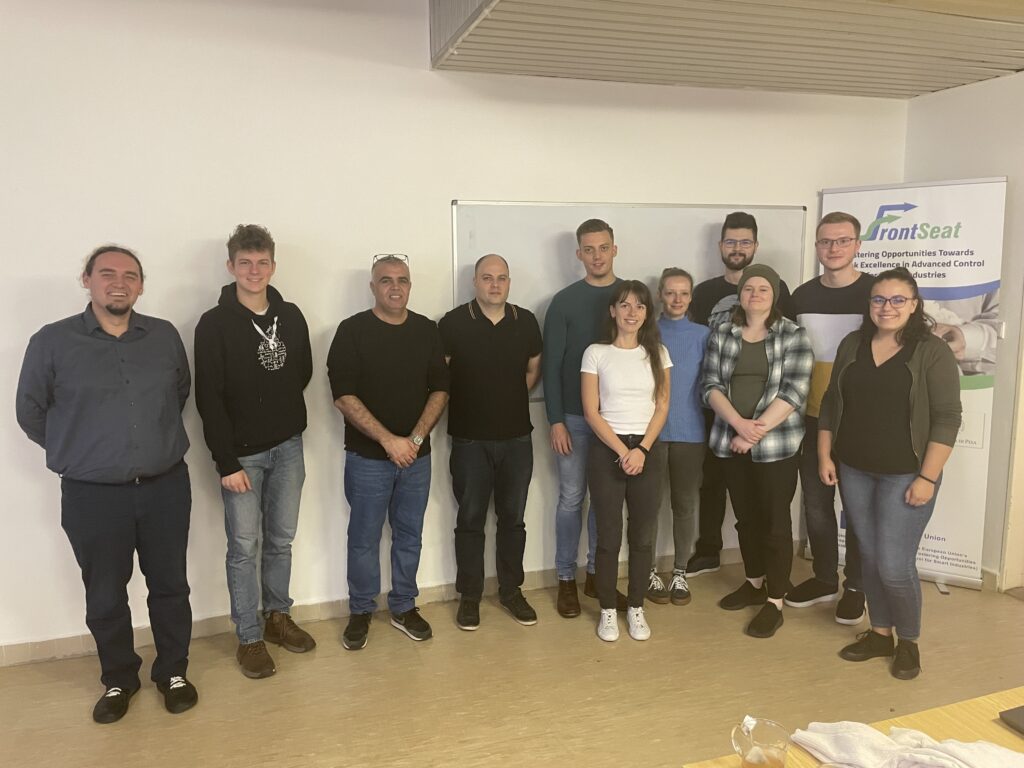
This project has received funding from the European Union’s Horizon under grant no. 101079342 (Fostering Opportunities Towards Slovak Excellence in Advanced Control for Smart Industries).
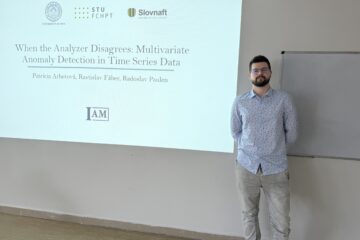
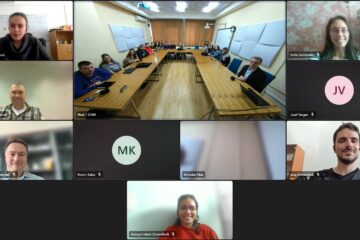
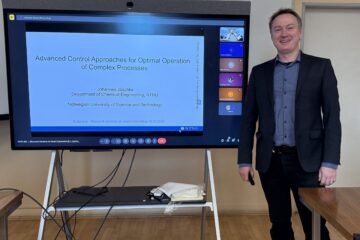


0 Comments